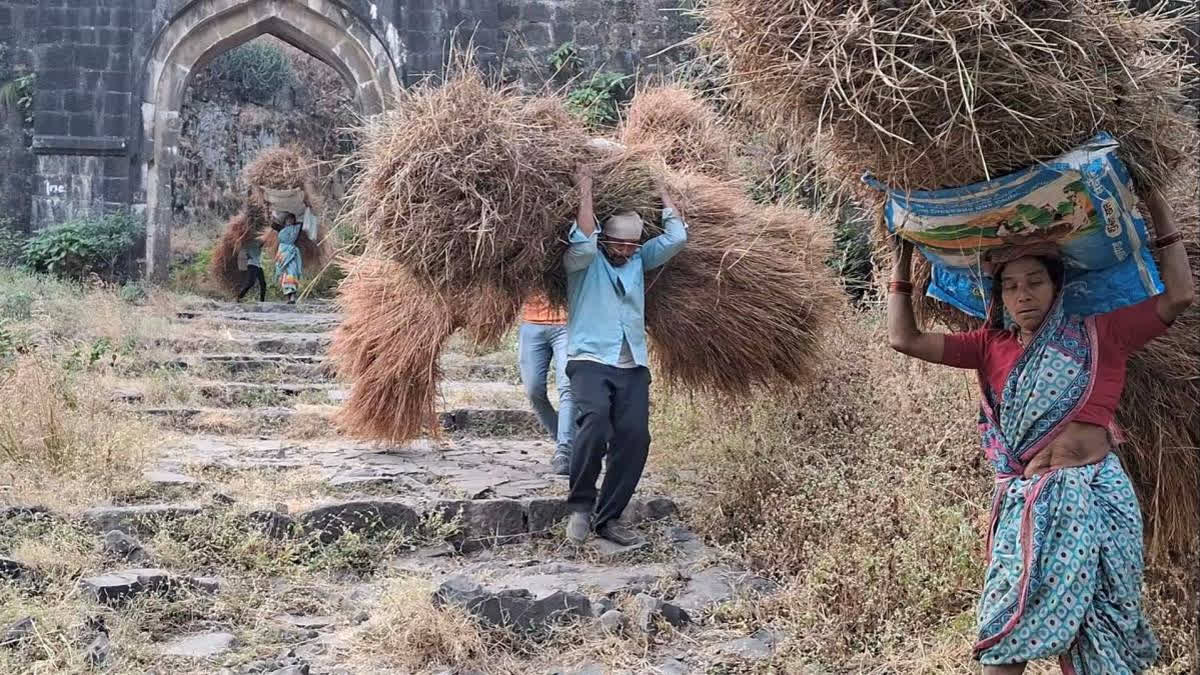Amravati: Nestled in the dense forests of Melghat, the members of the Gawli community from villages near the historic Gavilgad Fort face daily hardships to provide fodder for their cattle. Despite the challenges of wild animals, bitter cold, and long distances, they climb the fort every morning to cut grass for their animals.
Residents of Pandhari, Lavada, and Aldoh villages depend heavily on the fort's grasslands. "Our day starts at 4 am," says Narayan Yewale of Aldoh.
"The men milk the cows and prepare them for herding while women clean the animal sheds. After that, we head to Gavilgad Fort to cut grass," he added.
Climbing the fort, which is five to seven kilometres away, is no easy task. "We make multiple trips carrying bales of grass on our heads," shares Lakshmi Yewale of Pandhari. "After bringing grass in the morning, we gather firewood in the afternoon," she added.
The ban on grazing cattle in the Tiger Reserve forests around Melghat makes this task critical. "Since grazing is prohibited, Gavilgad is our only source of fodder," said Suresh Yewale.
Lavada village, with a population of 250, has nearly 1,000 cattle. Similarly, Aldoh, with 300 residents, has over 350 animals.
During the monsoon, green grass is abundant, but by winter, only dry grass remains. "Grass is available until January or February. In summer, there is a severe shortage of both grass and water. Many families migrate to the plains to survive," Lakshmi explains.
The fort's grasslands are a lifeline for the community. "Every day, we risk encountering wild animals and face exhaustion, but our animals depend on us," Narayan said.
Read More



